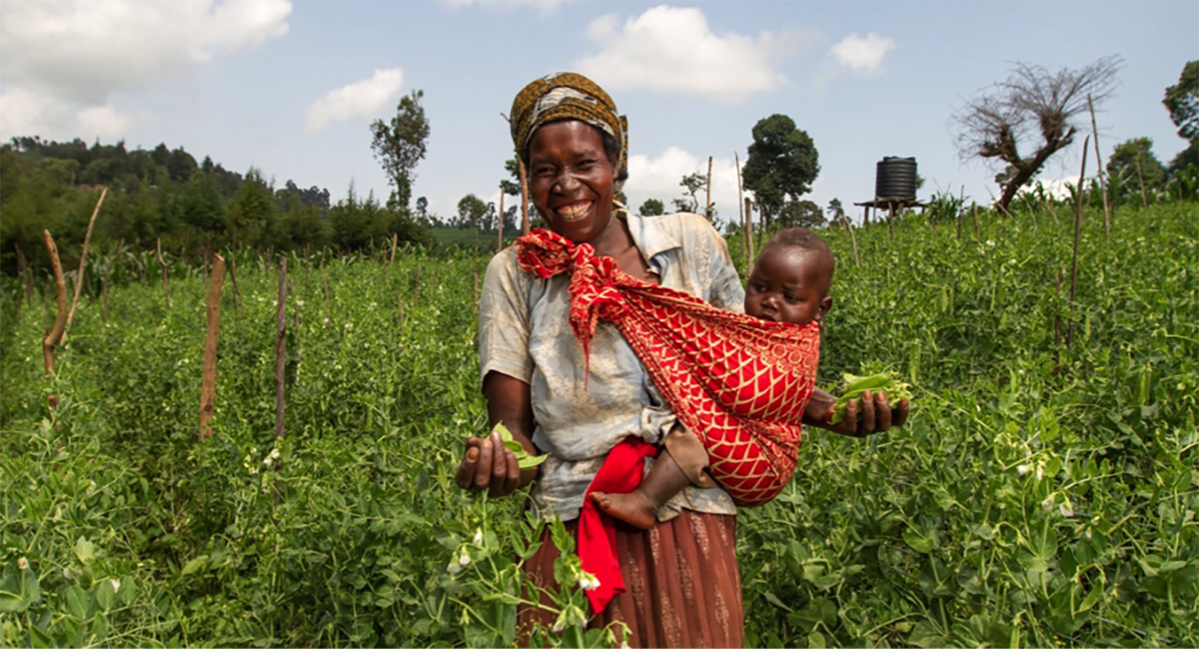
by Elinam Amevor, PhD Student, School of Journalism and Communication
The nineteenth century colonial legacy of the British in the Gold Coast—now Ghana—which ensured that men produce cash crops for export to keep the engines of the Industrial Revolution running, while women engage in food-crop production to feed the home, continues to determine the gendered nature of Ghana’s agricultural sector in the twenty-first century.
Nothing much has changed regarding the androcentric nature of agriculture in Ghana after sixty-two years of the country’s independence from British rule. The patriarchal injustices that characterize the disproportionate distribution of agricultural resources, in the form of inputs and benefits from government-assisted initiatives to men and women in Ghana, are pervasive.
Agriculture is considered the backbone of Ghana’s economy, accounting for about 40 percent of the country’s gross domestic product, employing 60–70 percent of the labor force, 80 percent of which are women. While women contribute about 70 percent to Ghana’s food stock, they are still marginalized with regard to access to land, inputs, and credits (Doss et al., 2015).
The marginalization of women farmers by banking and microfinance institutions regarding access to credit facilities, coupled with deep-rooted customary practices that deny women the right to inherit land, continue to worsen the economic condition of women.
Recently, the government of Ghana, in collaboration with the Canadian government, instituted a “Planting for Food and Jobs” program, which seeks to help address the declining growth of Ghana’s agricultural sector. This flagship initiative appeared to be a beacon of hope for the livelihood empowerment of women along the agricultural value chain in Ghana. Two years after its implementation, however, assessment of the “Planting for Food and Jobs” program revealed practical weaknesses, resulting in policy experts’ description of the policy as a piecemeal initiative that is political in implementation and lacks the potential to make desired impact on smallholder farmers.
While many have proposed policy recommendations for the structural modification of the program, there virtually are no questions as to why the policy document of the “Planting for Food and Jobs” program has no component for women farmers in rural Ghana. The exclusion of a women’s component in the design and implementation of a policy initiative like the “Planting for Food and Jobs” program in a critical economic sector such as agriculture in Ghana, which survives on the backs of women, has informed the reason for this research. Given women’s historical marginalization vis-à-vis their contribution, my research project—based on the concepts of participatory communication and empowerment—seeks to examine the role of participatory communication for women’s livelihood empowerment under this initiative.
The study seeks to examine how the challenges in Ghana’s agricultural sector impact the livelihood of women; investigate women’s involvement in the design and implementation of the “Planting for Food and Jobs” program; and assess the prospects of this initiative on the livelihood of women in rural Ghana.
Preliminary findings from focus groups with women farmers in selected districts in rural Ghana, interviews with officials of the ministries of agriculture and gender, as well as analysis of communication campaigns of the program reveal a consistent trend that points to less engagement with women and the absence of a concrete objective within the program to address the specific needs of women farmers in rural Ghana, moving forward.
Conclusion of analysis of data collected and the findings thereof, will determine what recommendations to offer to women’s rights advocates to demand active involvement of women in the future modification of the program, and the need for participatory communication in the implementation of the “Planting for Food and Jobs” program.
—Elinam Amevor is a PhD student in Media Studies, School of Journalism and Communication. He received a 2018-19 CSWS Graduate Student Research Grant in support of this research.
Reference
Doss, C., Kovarik, A., Peterman, A., Quisumbing, A., & Bold, van den M. (2015). Gender inequalities in ownership and control of land in Africa: Myth and reality. Journal of the International Association of Agricultural Economics, 46(3) 403-434.

